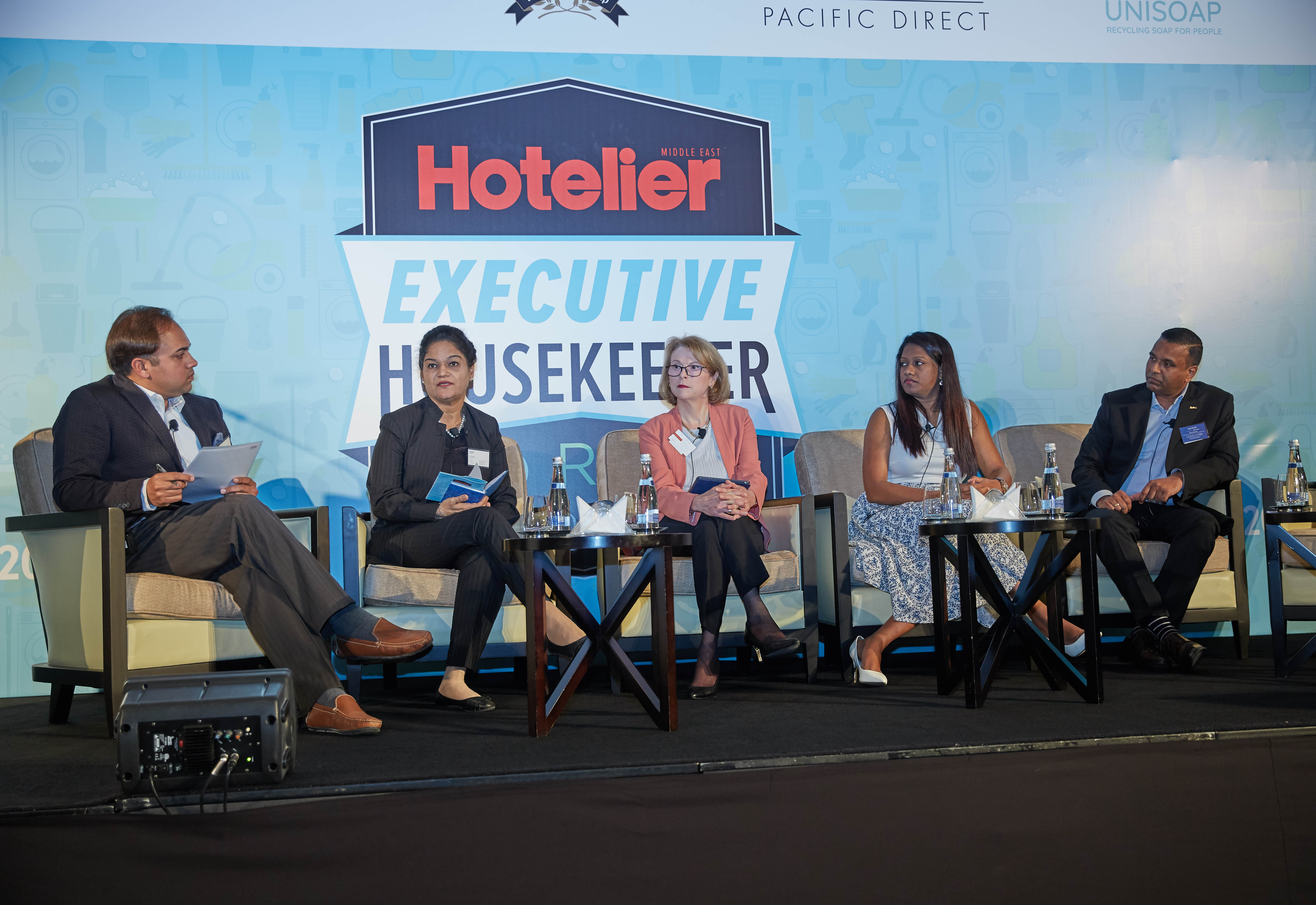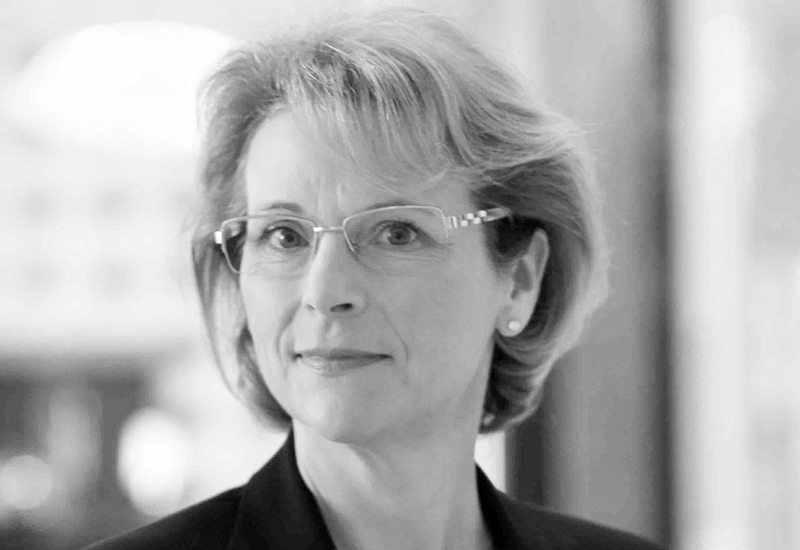During the sixth annual Hotelier Middle East Executive Housekeepers Forum 2018 held on May 2 at the Grosvenor House, Dubai, the first panel discussion explored the challenges faced by housekeepers during hotel renovations.
The discussion, which was hosted by Minar Aliyar, executive housekeeper at Courtyard by Marriott Al Barsha, Dubai (Pre-Opening) included panellists: Pamini Hemaprabha – executive housekeeper, Bahi Ajman Palace Hotel; Tatjana Ahmed – housekeeping manager – functional specialist housekeeping, Grand Hyatt Dubai; Tushara Rathnayake – executive housekeeper, Radisson Blu Ajman and Trishna Hundal – director of housekeeping, Sheraton Grand Dubai.
Ahmed, talking about Grand Hyatt recent completion of an extensive renovation, reflected that sometimes a soft refurbishment instead of a complete one would be most cost-effective and would cause less disruption to a the running of a hotel.
“Grand Hyatt just underwent an intensive renovation programme and when we started renovating, the hotel was already 13 years old. Two years ago, we had already started our first mock-up room but by the time we had the mock-up rooms and we get them tested and then approved, and roll them out for completion, these rooms are four years old potentially by the time it’s done.
“And your first customer comes in to the room and says, “Oh, your rooms look tired…”. So, we always have to be very much ahead of our game, whatever renovation we do,” she asserted.
“The question is was this really the right thing to do? A half renovation would have actually been a better option?” Ahmed questioned adding, “It would have caused less interruption and would have been cheaper. Looking at it now, we have to renovate again in 10 years’ time. So maybe a soft refurbishment would have been a better option.”
Ahmed pointed out that half of the room before the renovation was in “perfect condition” but what looked “tired” in the room included upholstery like carpets, wallpaper, the artwork, floor tiles in the bathroom and the lighting fixtures.
“Today, you get such smart interior designers. They make your rooms look really, really good just by changing the carpets, move furniture around, change the layout of the room and giving the whole thing a new look rather than hacking out the whole thing completely,” she added.
“What we have changed doesn’t make much difference in quality so we have to make several mock-up rooms and see what the right thing to do,” Ahmed advised during the discussion.
Panellist Hemaprabha agreed with Ahmed but pointed out that when it comes to renovations, she looks at the room rates as a deciding factor.
“I look at the room rate. You know that if guests is paying AED2,000-3,000 (USD $544 - $816), the room should meet the appropriate standards. But we are seeing a sudden decline (in room rates) to AED500-600 ($136-$163) and then you’re thinking, “How do I propose injecting certain amount to enhance the product?” so somewhere, housekeepers are getting mindful of the strategy that we plan ours according to the big strategy. So, I think we should constantly support the idea of doing soft refurbishments because it is less (in cost,” Hemaprabha explained.
Hemaprabha also rounded back to panellist Hundal’s previous point during the discussion that renovation has to be done in phases and that one “Can’t really propose a direct injection”.
“Because you like or not, the market is constantly fluctuating. It is not about brands anymore. It isn’t about two- three-stars anymore. It is a challenging and fluctuating market,” Hemaprabha pointed out referring to the challenges hoteliers are facing with average daily rates despite occupancy rates performing well at most properties in the region.

| Advertisement |










 Search our database of more than 2,700 industry companies
Search our database of more than 2,700 industry companies









